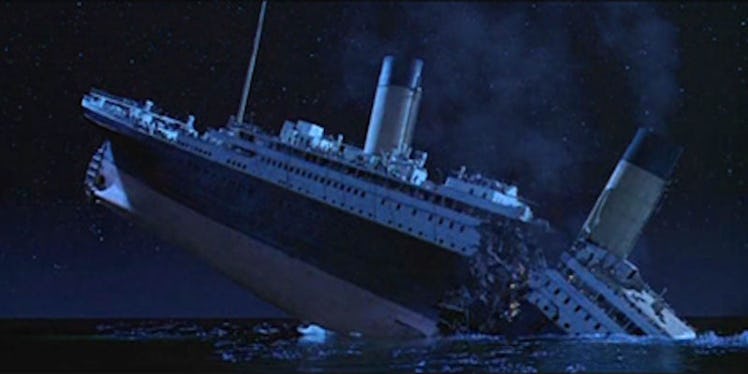
New Evidence Says The Titanic May Not Have Been Sunk By An Iceberg
We all know the story of the Titanic, the grandest ship in the world.
It was the largest passenger ship, setting sail across the Atlantic in April 1912 from England to New York.
But as it went north in the ocean, moving fast, it hit an iceberg.
Then all hell broke loose as the ship started to sink: It broke in half, there weren't enough lifeboats, women and children went first, lower tiers were stranded, Rose let Jack drown even though there was clearly enough room on that piece of wood and the band played on to their freezing deaths.
But now, one expert is claiming that it wasn't really the iceberg that did the Titanic in.
Senan Molony, an Irish journalist who has spent way too much time researching the Titanic, believes that it was actually a fire that caused the Titanic to sink.
According to Molony, there was a fire in the ship's hull that had been burning for three weeks without anyone noticing, somehow, I guess, sure.
Molony devised this idea by researching photos of the ship when it was docked before leaving for America.
He believes he sees really long black marks on the ship right about where the iceberg hit.
So according to this theory, it was a combination of a long-burning fire and the iceberg that caused the Titanic to sink.
Basically, the fire made that part of the ship weak, so when it hit the iceberg, it immediately fell apart.
Molony said,
We are looking at the exact area where the iceberg stuck, and we appear to have a weakness or damage to the hull in that specific place, before she even left Belfast.
He went full-on conspiracy theory with this idea. Molony believes that some crew members knew about the fire but kept it hidden from passengers, like by turning the ship around when it was in the dock so no one could see the fire marks making the ship ugly.
He said,
Nobody has investigated these marks before. It totally changes the narrative. We have metallurgy experts telling us that when you get that level of temperature against steel it makes it brittle, and reduces its strength by up to 75 percent.
We probably won't know exactly what happened to the Titanic, and if there was, in fact, a fire. But we do know one thing for sure:
Jack totally could've fit on the damn wood.
Citations: Titanic may not have been sunk by an iceberg after all (Metro)